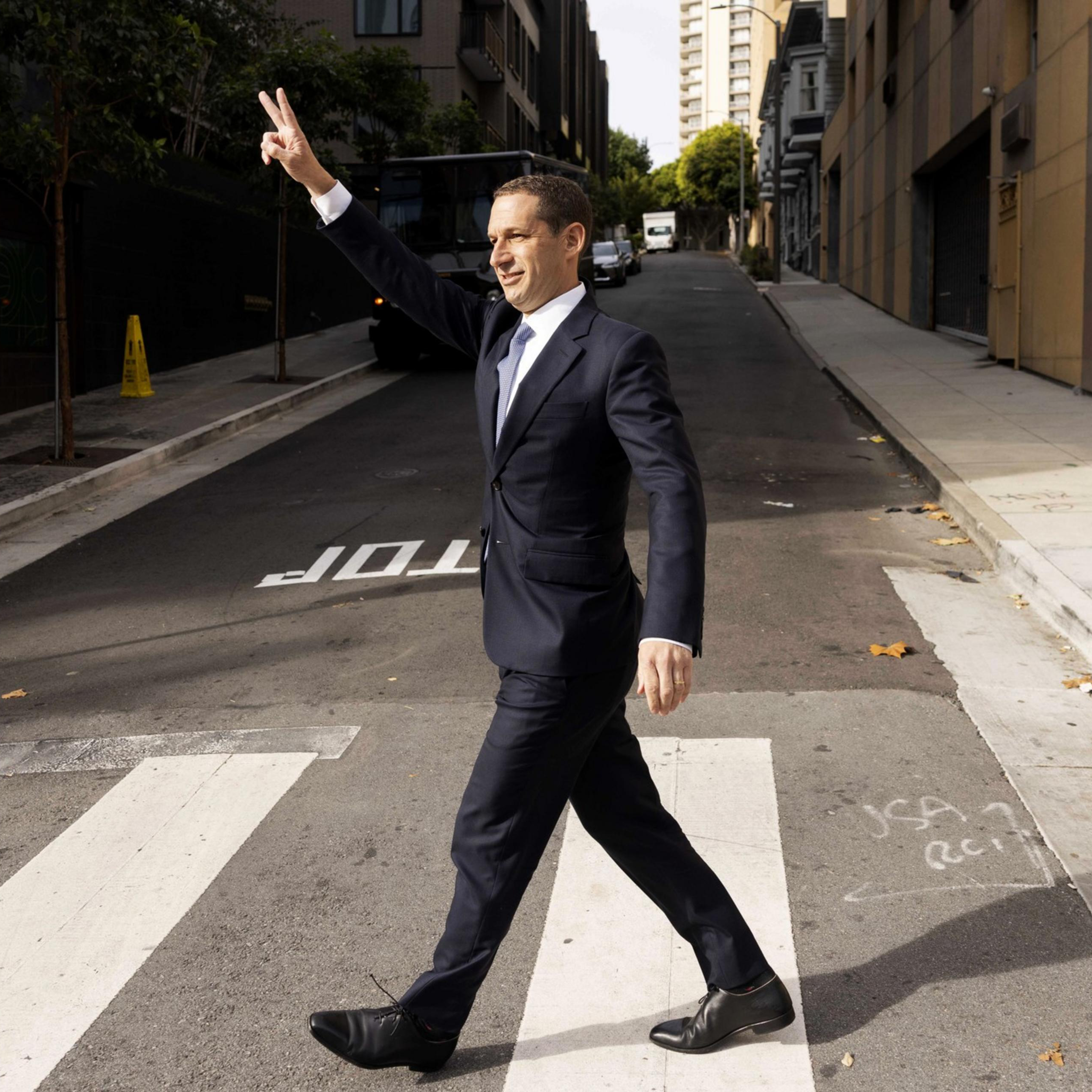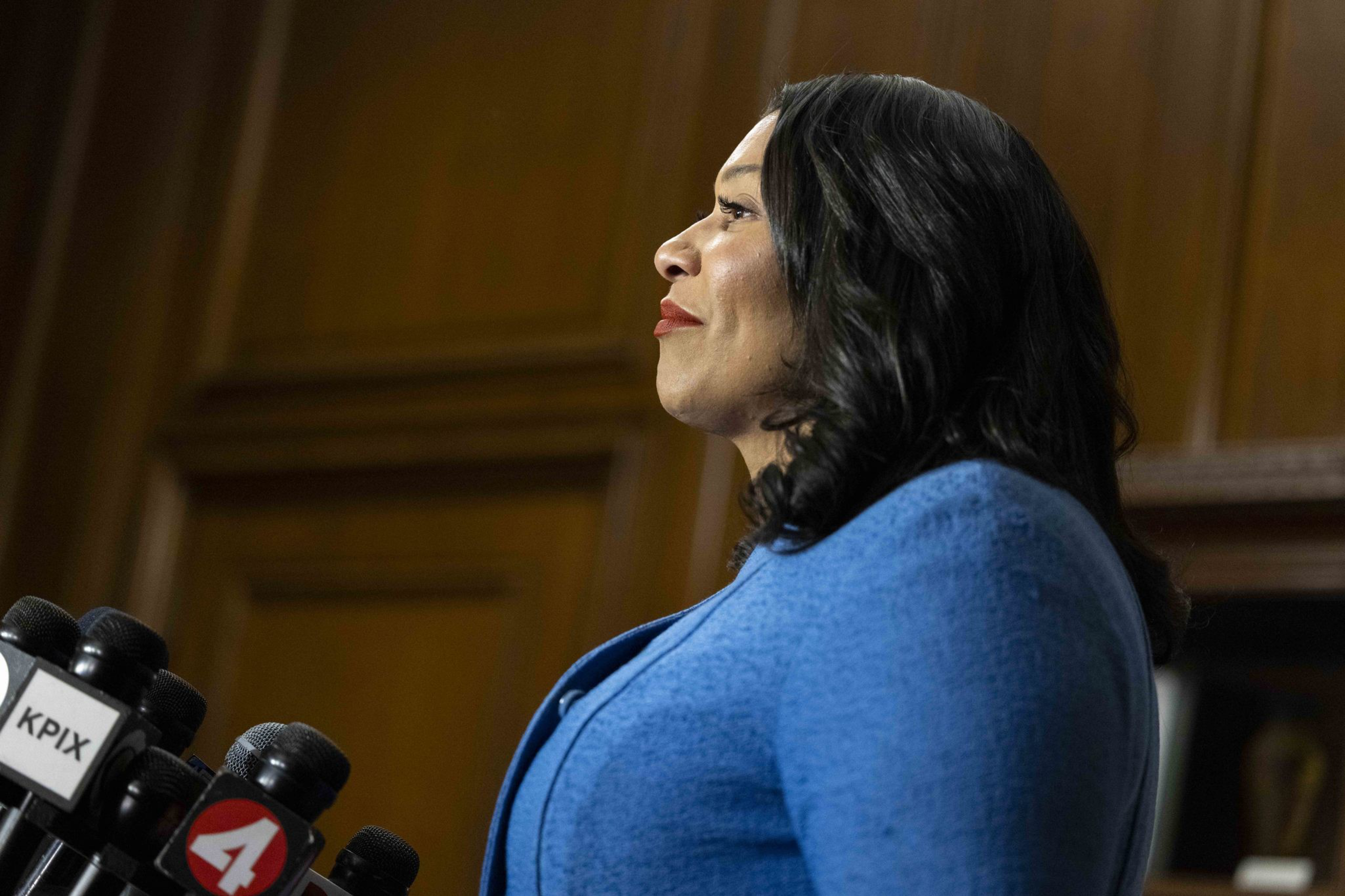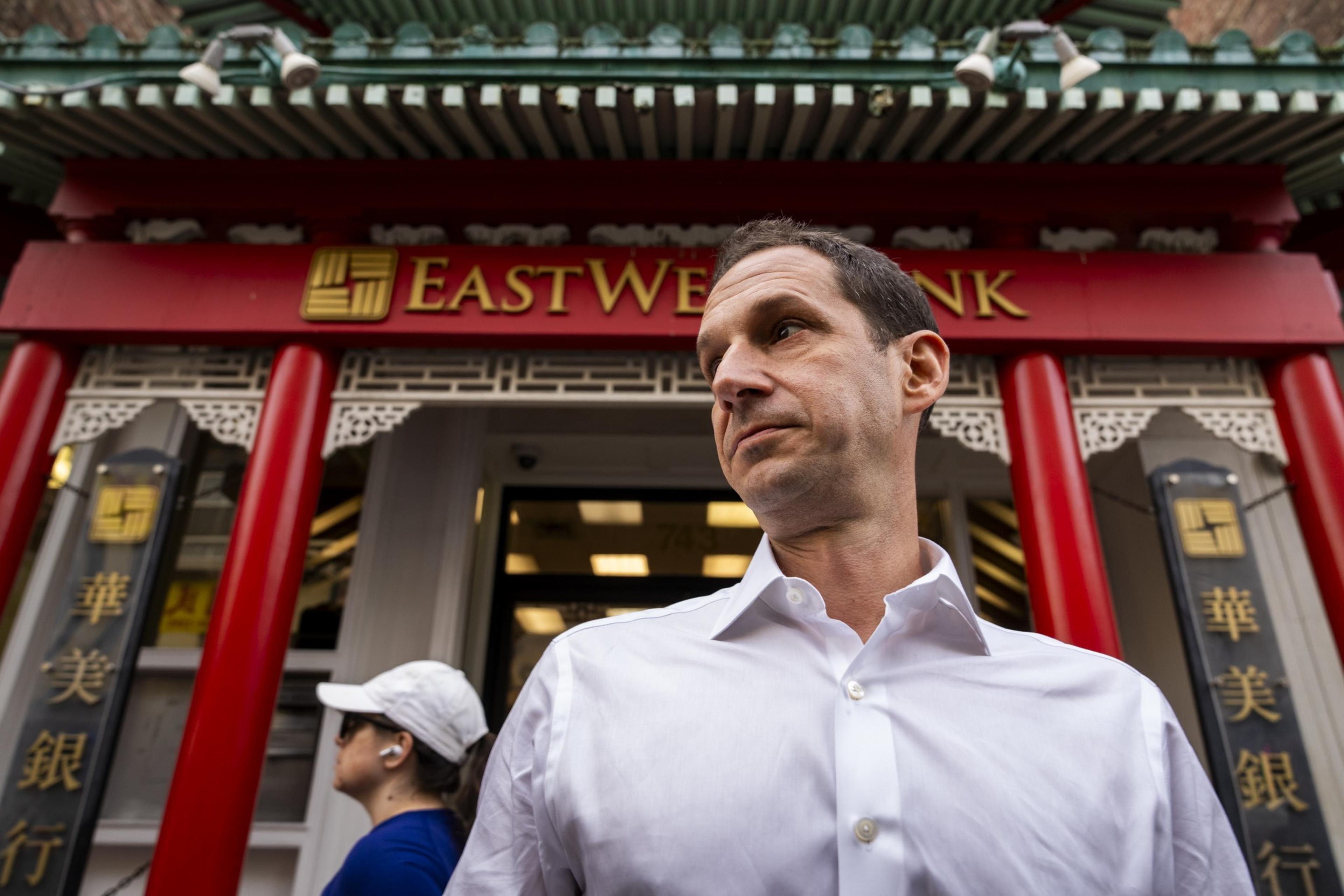So, wealthy Levi Strauss heir Daniel Lurie is mayor-elect. His wish to lead San Francisco has come to pass, the newest ballot returns show.
Congratulations, said outgoing Mayor London Breed. Here’s the key to the broken-down house. The roof is about to collapse, there’s mold in the furniture, no one paid the electric bill, and there’s a crazy guy who just moved in down the street who’s threatening to light the whole place on fire.
To wit: Lurie is inheriting San Francisco’s $800 million budget deficit, an outgoing gift Breed wrapped in a bow and left on his doorstep.
Perhaps even more daunting: at least $400 million of San Francisco’s annual budget comes from the federal government, the purse-strings of which will soon be held by president-elect Donald Trump.

And just in case anyone hasn’t heard, he isn’t exactly the biggest fan of San Francisco (opens in new tab).
San Francisco’s downtown offices have emptied out post-pandemic, blowing a hole in the city’s tax revenue wider than the Golden Gate Bridge. Breed tackled the budget earlier this year to much fanfare, but the devil in the details may flame Lurie from the start.
The controller’s office did not answer a request for comment in time for publication. Breed’s office was tied up with a concession announcement at the time of this writing.
But in its annual revenue letter (opens in new tab) — perhaps better known as the “we told you so” screed — the controller’s office noted much of this year’s budget “relies heavily on one-time sources to balance the budget” and that policymakers will need to “consider options for constraining cost growth.” Depletion of rainy day reserves, wage freezes, staff furlough days and service reductions are all tools in the toolkit, they said.
But, ultimately, the controller cautioned that the city’s $16 billion budget faces structural problems. Translation? We spend more than we earn. And that means an experienced budget surgeon needs to start making cuts.
Lurie’s opponents derided his lack of government experience, calling him the ultimate “nepo baby.” (opens in new tab) His resume (opens in new tab) mostly consists of capitalizing on his personal fortune and connections to wealthy elites to start a nonprofit, Tipping Point Community, that disbursed dollars to anti-poverty groups. He’ll now go from leading a group with roughly 50 employees (opens in new tab) to one with more than 36,000.
In a way, San Francisco has been here before – Frank Jordan was police chief when he won San Francisco’s mayor race in 1991, with no experience building a City Hall budget. Former city controller Ed Harrington had a front row seat, serving as San Francisco’s chief accounting officer (opens in new tab)from 1991 to 2008.
There is a silver lining, Harrington said, though it is the tiniest sliver of one. Many elected officials find themselves trigger-shy at cutting departments. They know that axing 10% of the Department of Public Health’s budget will mean, say, a particular outreach program on flu shots may get the boot. And cutting 5% from the department of homelessness may mean fewer people living on the streets will get connected to, say, dental services.
Lurie may not have that problem.
“In some ways, not knowing shit makes it easier to make budget decisions. You don’t have to know or care what the effect is,” Harrington said. “It’s horrible from a service perspective, it’s amazing from a budget finalization perspective.”
During his mayoral term, Jordan infamously called on all departments (opens in new tab) to make 10% cuts to close a $150 million budget gap — promising it would happen without reducing services.
It didn’t quite happen that way, Harrington recalled. But when the streets didn’t get clean because the money wasn’t there, Jordan could easily claim it wasn’t his fault. Jordan just told them to make cuts. Any service impacts were the fault of department heads’ choices.
“That was a chicken shit way to do it,” Harrington said.

While Lurie repeatedly said on the campaign trail that he is not a “City Hall insider,” he’s going to need them if he’s going to pull the budget together in one piece, Harrington said. Without experienced hands at the wheel, department heads are known to present budget cuts that they know city leaders will essentially be pressured to reverse.
For instance, Harrington said, the police budget might show 10% cuts on paper. Overtime? Sure, we’ll snip it out. But when a dignitary visits — like say, President Trump — is the mayor going to tell the police they can’t provide a motorcade because it wasn’t in their budget?
“You’re going to have a hard time knowing who to trust” when taking office as a newcomer, Harrington said. “If [departments] want to sabotage you, they’re expert at that.”
Speaking of Trump, he is, of course, the wild card in this massive budget.
In his first term in office, Trump threatened to cut federal spending from sanctuary cities (opens in new tab), including San Francisco, which a federal court ultimately halted. He also used the specter of homelessness to threaten Environmental Protection Agency funding, crowing that used needles (opens in new tab) were polluting the ocean. Federal disaster aid (opens in new tab) was also on Trump’s chopping block.
Newsom has already announced a state disaster aid fund – just in case. And California Attorney General Rob Bonta is gearing up his legal team to defend California cities against Trump incursions.
San Francisco’s vulnerability to federal mucking is vast: The city controller’s letter from earlier this year (opens in new tab) warns of “federal revenue risk,” with $570 million of reimbursements anticipated from FEMA for pandemic relief, and $21 million incurred for 2023 winter storms.
Harrington is less worried about things like disaster relief. Not only is Newsom already moving to protect California, but it’s a politically undesirable type of undercutting.
“What’s important to look back on is what he said versus what he actually interfered with. He went on and on about screwing us. But when we wanted FEMA money, we got FEMA money,” he said. “It’s hard to screw with people at that level.”
San Francisco has another glaring vulnerability Mayor Lurie will need to watch out for: mass transit.
Large-scale projects rely heavily on federal grants, which have far more largesse than a city can muster. The Central Subway, for instance, netted nearly $1 billion (opens in new tab) in the federal new starts program. Even in normal times, that needed a political push for approval.
“If [House Speaker Emerita Nancy] Pelosi had not been there with real clout, would we have done as well on the Central Subway, that goes nowhere and carries no one? Probably not,” Harrington said.
While there are many people in Chinatown who would disagree it carries no one, few would disagree that Pelosi’s political weight helps defend San Francisco on the federal level. But Trump’s feud with Pelosi has also drawn a Republican spotlight to San Francisco. That means Lurie may have fewer resources under his belt during his first term.
Harrington worries for our future because of one key difference: Trump’s stated goal to hire federal workers who are Trump loyalists. That means fewer people of conscience will be around to stop his worst impulses, Harrington cautions.
“A lot of people who protected us won’t be here this time,” he said.
Lurie will need to prove his experience is up to snuff — quickly.



